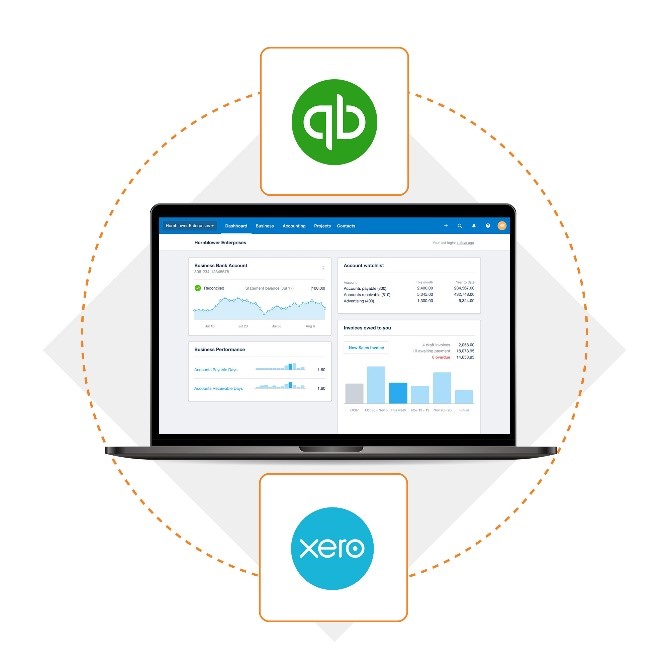10 steps to perfect bookkeeping

Joe Virtue, from our advisory team, runs through his top ten tips for maintaining accurate records and managing your company's financial health.
Running a small or medium-sized enterprise (SME) can be both exciting and challenging. One essential aspect of managing your business effectively is bookkeeping. Proper bookkeeping ensures that you maintain accurate financial records, make informed decisions and comply with legal requirements. It involves recording, organising and managing financial transactions to provide accurate and up-to-date information about your business' financial health. In this article, we will explore the basics of bookkeeping, its importance, and how Page Kirk can assist you in maintaining accurate financial records.

Here are our key bookkeeping points specifically tailored for SMEs
- Set Up Your Chart of Accounts:
Start by creating a chart of accounts, which is a categorised list of all your financial transactions. Common accounts include assets, liabilities, equity, income and expenses. Customise your chart of accounts to suit your business' specific needs. Consider using accounting software or spreadsheets to organise your accounts effectively.
- Track Your Income and Expenses:
Keep a record of all incoming and outgoing funds. Track your sales revenue, consulting fees, product sales and any other sources of income. Categorise your expenses, such as rent, utilities, salaries, office supplies, marketing costs and taxes. Be diligent in recording every transaction to maintain accurate financial statements.
- Maintain Invoices and Receipts:
Keep all your invoices and receipts in a well-organised manner. These documents serve as evidence of your business transactions. They are essential for validating your income, expenses and tax deductions. Consider implementing a digital filing system or cloud-based storage for easy access and retrieval.
- Reconcile Bank Statements:
Regularly reconcile your bank statements with your bookkeeping records. This process involves comparing your recorded transactions with your bank's statement to identify any discrepancies. Reconciliation helps uncover errors, bank charges and potential fraudulent activities. It ensures your financial records align with your actual bank balances.
- Separate Personal and Business Finances:
Avoid mixing your personal and business finances. Open a separate business bank account to maintain clear boundaries. This separation simplifies bookkeeping, enables accurate tracking of business expenses and supports easier tax reporting.
- Track and Manage Accounts Payable and Receivable:
Keep track of the money you owe (accounts payable) and the money owed to you (accounts receivable). Ensure that you send invoices promptly and follow up on payments due. Implement a system for tracking late payments and consider offering incentives for early payments to maintain healthy cash flow.
- Regularly Review Financial Statements:
Take time each month to review your financial statements, such as profit and loss (income statement), balance sheet and cash flow statement. Analysing these reports helps you understand the financial health of your business, identify trends and make informed decisions for future growth.
- Stay Compliant with Tax Obligations:
Understand your tax obligations and ensure you comply tax laws. Keep track of your tax filing deadlines, make estimated tax payments if required and maintain accurate records for tax deductions. Consider consulting a tax professional to ensure you meet all your tax obligations correctly.
- Make Use of Accounting Software:
Consider using accounting software tailored for SMEs. These tools automate many bookkeeping tasks, such as generating invoices, tracking expenses and producing financial reports. Accounting software simplifies the process, saves time and reduces the likelihood of errors.
- Seek Professional Help When Needed:
If bookkeeping becomes overwhelming, or you need expert guidance, consider hiring a bookkeeper or an accountant. They can assist you in managing complex financial transactions, ensuring compliance and offering valuable insights into your business' financial performance.
Bookkeeping plays a vital role in the success of SMEs. By following this simplified guide, you can establish efficient bookkeeping practices that will help you make informed decisions, maintain accurate financial records and ensure compliance with legal requirements. Remember, organised and accurate bookkeeping provides a solid foundation for the growth and sustainability of your business.
Expert Bookkeeping Services
Page Kirk offers comprehensive bookkeeping services tailored to your business requirements. We can handle all aspects of your financial records, ensuring accuracy and compliance while freeing up your time to focus on your business.

The experienced team at Page Kirk can generate timely and accurate financial reports, including income statements, balance sheets and cash flow statements. We can analyse these reports, helping you understand your financial position and providing valuable insights to guide your business decisions.
Business Advisory Services
Financial Reporting and Analysis:
Beyond bookkeeping, we offer business advisory services to help you grow and develop your business. Looking ahead within a business is vital to ongoing success. We offer expertise in planning, budgeting and forecasting to help you thrive. We can provide guidance on financial management, budgeting, forecasting, and strategic planning, helping you achieve your long-term business goals.
Page Kirk provides a bookkeeping service for businesses of all sizes and complexities. Whether you are just setting up a business or are a well-established enterprise, now is the perfect time to make use of our financial expertise. We can be your trusted partner in maintaining accurate records, providing financial insights and assisting you with various accounting needs. By utilising our expertise, you can focus on growing your business while ensuring your financial records are in capable hands.
If you need help with bookkeeping or would like to outsource the work to a professional, contact us on 0115 955 5500 or email enquiries@pagekirk.co.uk.